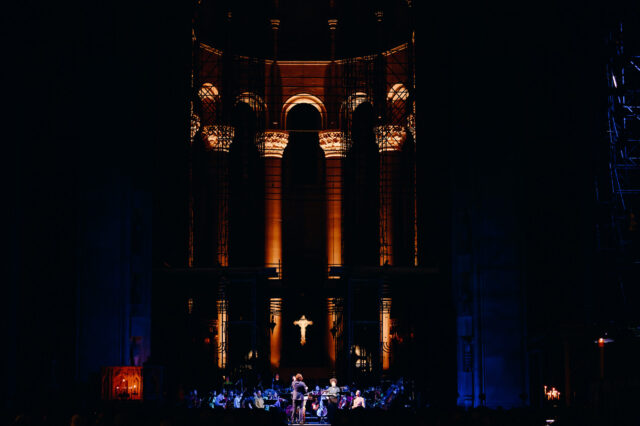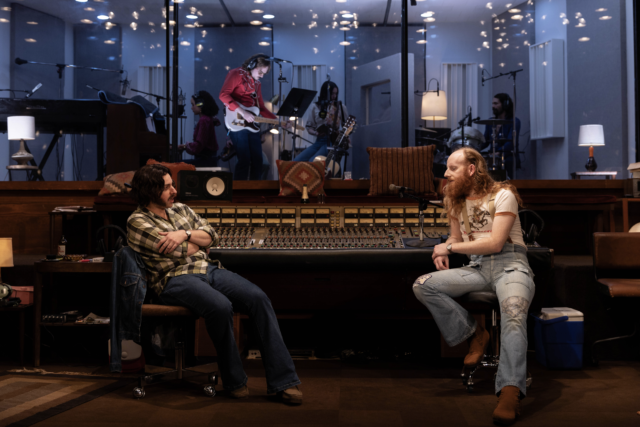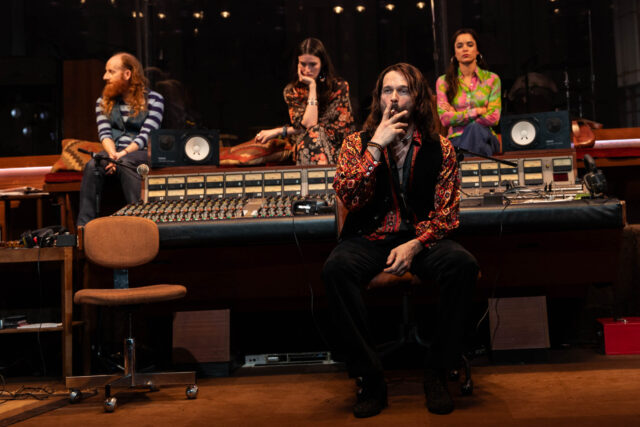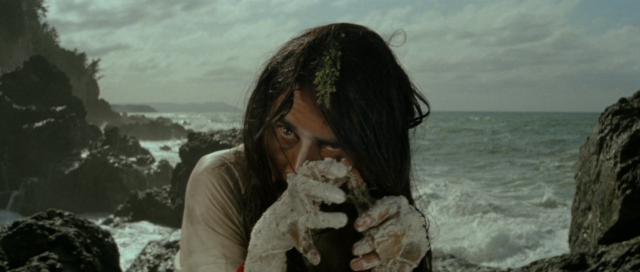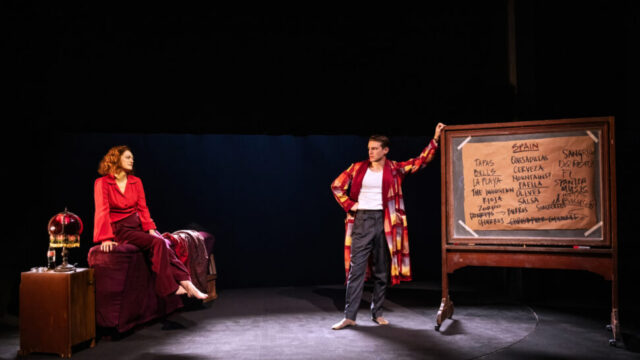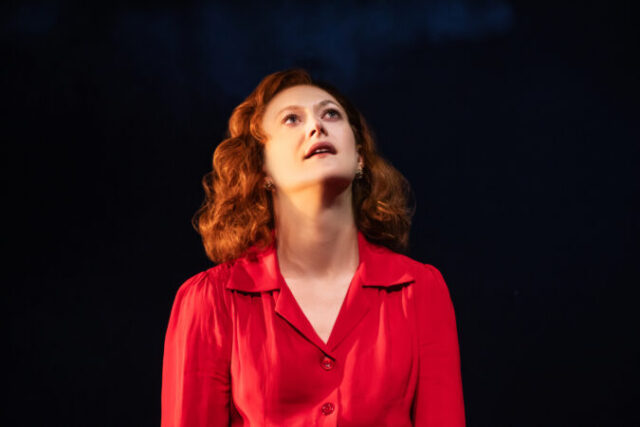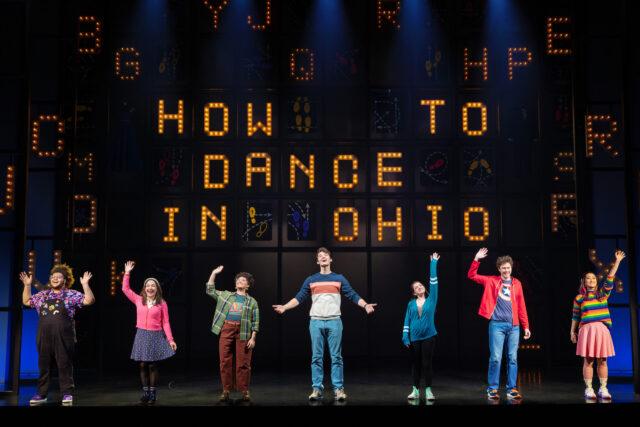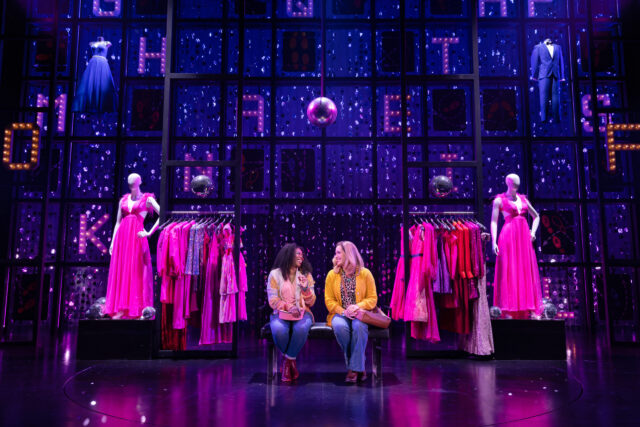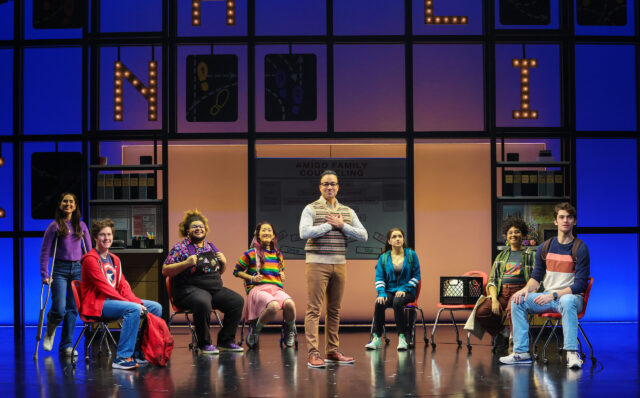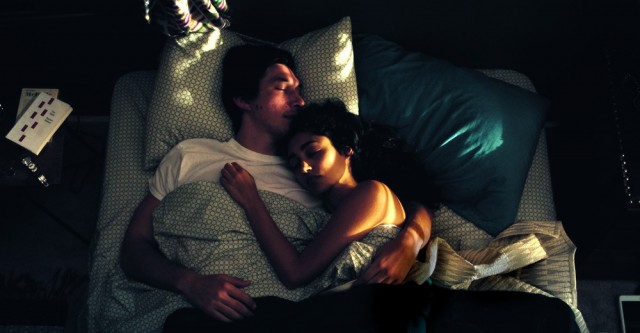
Adam Driver and Golshifteh Farahani star as a happy New Jersey couple in Jim Jarmusch’s Paterson
PATERSON (Jim Jarmusch, 2016)
Metrograph
7 Ludlow St. between Canal & Hester Sts.
Tuesday December 26, 2:15
Series runs December 20-26
212-660-0312
metrograph.com
www.bleeckerstreetmedia.com
Metrograph is celebrating the career of forty-year-old award-winning Iranian French actress Golshifteh Farahani in the four-film series “About Golshifteh,” which kicks off December 20 with Asghar Farhadi’s 2009 About Elly and continues with Abbas Kiarostami’s 2008 Shirin and Marjane Satrapi and Vincent Paronnaud’s 2011 Chicken with Plums before concluding with Jim Jarmusch’s Paterson. Farahani was banned from living and working in Iran in 2009 because she appeared in the Ridley Scott thriller Body of Lies.
Paterson is a beautifully poetic, deceptively simple wonder about the beauty, poetry, and wonderful simplicity of life, an ode to the little things that make every day special and unique. Adam Driver stars as Paterson, a New Jersey Transit bus driver and poet who lives in Paterson with his girlfriend, Laura (Golshifteh Farahani), who spends much of her time decorating their small, quaint house, painting black and white circles and lines on curtains, couches, dishes, walls, and even her clothing, continually creating works of art out of nearly everything she comes into contact with. The film takes place over an ordinary week for the sweet-natured couple, who are very much in love, each allowing the other the freedom to explore who they are and offering their complete support. Every morning, Paterson wakes up around 6:12, as the sunlight streaks over their sleeping bodies. He checks his Casio wristwatch to confirm the time — he doesn’t use an alarm clock, nor does he own a cell phone or a computer — then snuggles closer with Laura for a few extra minutes. He eats Cheerios out of a bowl painted by Laura with circles that match the shape of the cereal. He studies a matchbook, which becomes the starting point for his next poem.
Lunchbox in hand, he walks to the Market St. garage and gets on board the 23 bus. He writes a few lines of poetry, listens to fellow bus driver Donny’s (Rizwan Manji) daily complaints, then heads out on his route through his hometown, picking up pieces of some very funny passenger conversations. For lunch he sits on a bench overlooking the Paterson Great Falls and composes more mostly non-rhyming lines in his “Secret Notebook,” which he will not show anyone but Laura. At quitting time, he walks home, checks the mail, fixes the tilted mailbox, sees what new art Laura has created, and takes their English bulldog, Marvin (Nellie, who won the Palm Dog at Cannes and passed away two weeks after shooting concluded), for a walk after dark, stopping for a beer and chatting with bar owner Doc (Barry Shabaka Henley). He then goes back home, ready to do it all over again the next day. But Paterson is no bored working-class suburbanite living out a dreary routine; he finds something new and special in every moment, from his job to his relationship to his nightly trips to the bar. Every day is different from the one before, Jarmusch celebrating those variations that make life such a joy.
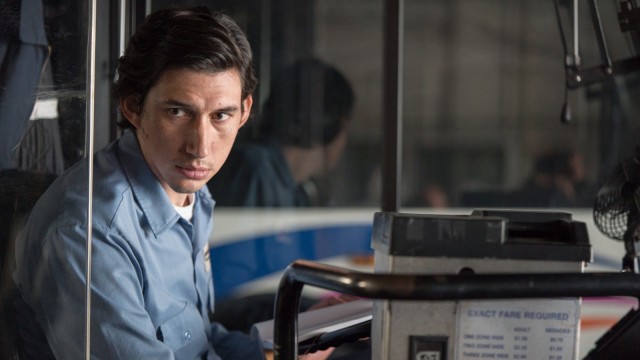
Adam Driver plays a poetic New Jersey Transit bus driver named Paterson in Paterson
Set to a subtle electronic score by Sqürl, Jarmusch and Carter Logan’s band, Paterson is a gorgeous film, lovingly photographed by Frederick Elmes, who captured a very different kind of town in David Lynch’s Blue Velvet, and edited to the sweet rhythm of a basic existence by Affonso Gonçalves. Paterson’s poems were written by award-winning poet Ron Padgett, who, like Jarmusch, studied with Kenneth Koch; the works, which unfold day by day, include the previously published “Love Poem” (a tribute to Ohio Blue Tip Matches and love), “Glow,” “Pumpkin,” and “Poem” as well as three written specifically for the film, “Another One,” “The Run,” and “The Line.” The words appear on the screen in a font based on Driver’s handwriting as he narrates them in voiceover. (Among the other poets referenced in the film are Frank O’Hara, Wallace Stevens, Petrarch, and Emily Dickinson.)
The film is also very much about duality and pairs, which Jarmusch has said in interviews was not always intentional. Adam Driver, who served in the Marines, plays a driver and former Marine named Paterson who lives and works in Paterson. He is constantly seeing twins, from two brothers named Sam and Dave (Trevor and Troy Parham) to two young girls on his bus to two older men on a bench. While Paterson and Laura seem meant to be together, their happiness infectious, he looks on every night as Everett (William Jackson Harper) desperately pleads with Marie (Chasten Harmon) to take him back. At the bar, Paterson often speaks to Doc about the pictures on the wall of fame, photos about such native sons as Uncle Floyd and his brother, Jimmy Vivino, as well as local superstar Lou Costello, part of one of the most popular comedy duos ever with Bud Abbott, who was born in Asbury Park (and thus does not qualify for the wall). Paterson’s favorite poet is lifelong New Jersey-ite William Carlos Williams, who Laura playfully refers to as Carlos Williams Carlos. (In making the film, Jarmusch was inspired by one of Williams’s most popular phrases, “No ideas but in things.”) And when Paterson’s not encountering twins, he’s bumping into random poets (Sterling Jerins, Method Man, Masatoshi Nagase) during his walks.
Paterson is a poetic marvel all its own, a dazzling film about love and harmony, about finding creativity in every aspect of life, led by marvelous performances by Driver and Farahani and written and directed by a master of cinematic restraint.
[Mark Rifkin is a Brooklyn-born, Manhattan-based writer and editor; you can follow him on Substack here.]
